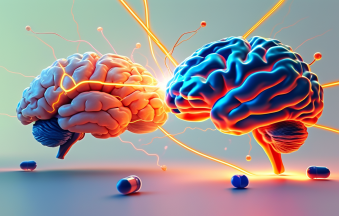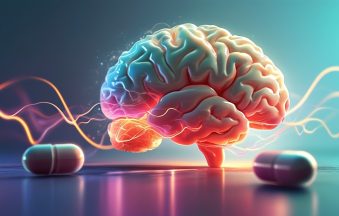Understanding Piracetam: Benefits, Uses, and Recommended Dosage
Introduction to Piracetam
Piracetam is one of the most well-researched compounds in the world of nootropics. Piracetam is regarded as the first nootropic drug, and it was indeed the first compound in history ever studied for enhancing cognitive functions. In this article, we will explain what Piracetam does, the potential side effects that come with use, the proper dosages, and how it works.
What is Piracetam?
Piracetam complements GABA, a neurotransmitter that is helpful in the brain. Nootropics are thought to be brain supplements that can improve one’s mental capacity without causing too many side effects. Nootropics such as Piracetam were first synthesized in the 60s by a Romanian chemist called Corneliu E. Giurgea.
There is still a lot of debate about whether the drug Piracetam can be medically used or not, as there is a lot of sale without prescription around the globe that is illegal in the U.S. However, what remains clear is that Piracetam is consistently used in efforts to improve one’s cognition level.
How Piracetam Works
Even though the benefits of Piracetam are well documented, it is still not clear how Piracetam specifically works. However, there are three hypotheses regarding improving cognition that further research can hopefully validate:
- Improving Receptor Sensitivity: Piracetam is thought to enhance receptor sensitivity by modulating Acetyl Cholinesterase activity.
- Enhancing Neuroplasticity: Certain investigations imply that Piracetam increases neuroplasticity, which is the ability of the brain to reorganize by forming new neural pathways. This is particularly beneficial for cognitive functions.
- Enhancing Oxygen Supply: Studies show that Piracetam improves the supply of blood and oxygen to the brain, sharpening mental faculties.
- Safeguarding Neurons: Piracetam acts as an antioxidant, helping protect neurons from free radicals and other damaging agents.
Benefits of Piracetam
Piracetam is often used to treat some neurological and cognitive issues in addition to healthy individuals who want to boost their mental concentration. Some of its main benefits include:
- Better Cognitive Abilities: Reports show that Piracetam enhances memory, attention, and performance, with some studies showing up to a 20% improvement in focus.
- Prevention of Memory Loss Related to Aging: Research has shown that Piracetam can boost learning and memory in elderly individuals, potentially preventing mental aging.
- Decreasing Problematic Behavior in Dyslexia: Dyslexics may benefit from Piracetam by improving language processing capabilities.
- Treatment of Myoclonic Seizures: Piracetam helps in reducing myoclonic seizures, which are characterized by sudden muscle jerks.
- Enhanced Mood and Cognitive Functions: Piracetam is reported to improve mood, reduce anxiety, and increase mental clarity, contributing to overall well-being and productivity.
Recommended Dosage of Piracetam
Dosages of Piracetam vary depending on factors such as age, body weight, and the intended purpose. Here are general guidelines:
- Regular Dose: Adults typically take between 1,200 mg and 4,800 mg daily, divided into two or three doses.
- Acute Treatment: For acute illnesses or memory impairments, dosages should be prescribed by a doctor.
- Long-Term Use: The maintenance dose typically ranges from 2 to 4 grams daily. Starting with a lower dose is recommended, and it can be adjusted based on tolerance and effects.
Important Considerations
- Renal Function: People with kidney issues may need a modified dosage, as Piracetam is excreted through the kidneys.
- Consultation: It’s advised to speak with a doctor before starting Piracetam, especially if you’re on other medications or have health conditions.
Potential Side Effects of Piracetam
Although Piracetam is generally considered safe, some users may experience side effects such as:
- Headaches (often due to low choline levels)
- Nausea
- Insomnia
- Irritability
Taking Piracetam with food and possibly supplementing with choline may help reduce side effects.
Combining Piracetam with Other Nootropics
Piracetam is often used in combination with other nootropics to enhance its effects, such as:
- Choline
- Aniracetam and Oxiracetam
- Natural Nootropics like Bacopa Monnieri or Rhodiola Rosea
Conclusion
Piracetam is a popular cognitive enhancer within the nootropics community, promoting brain health and improving cognitive abilities like memory, focus, and mental clarity. While it holds promise for those looking to enhance cognitive performance or address medical conditions, it should be taken with caution. Starting with a low dosage and consulting a physician is essential for maximizing its benefits safely.














Add comment